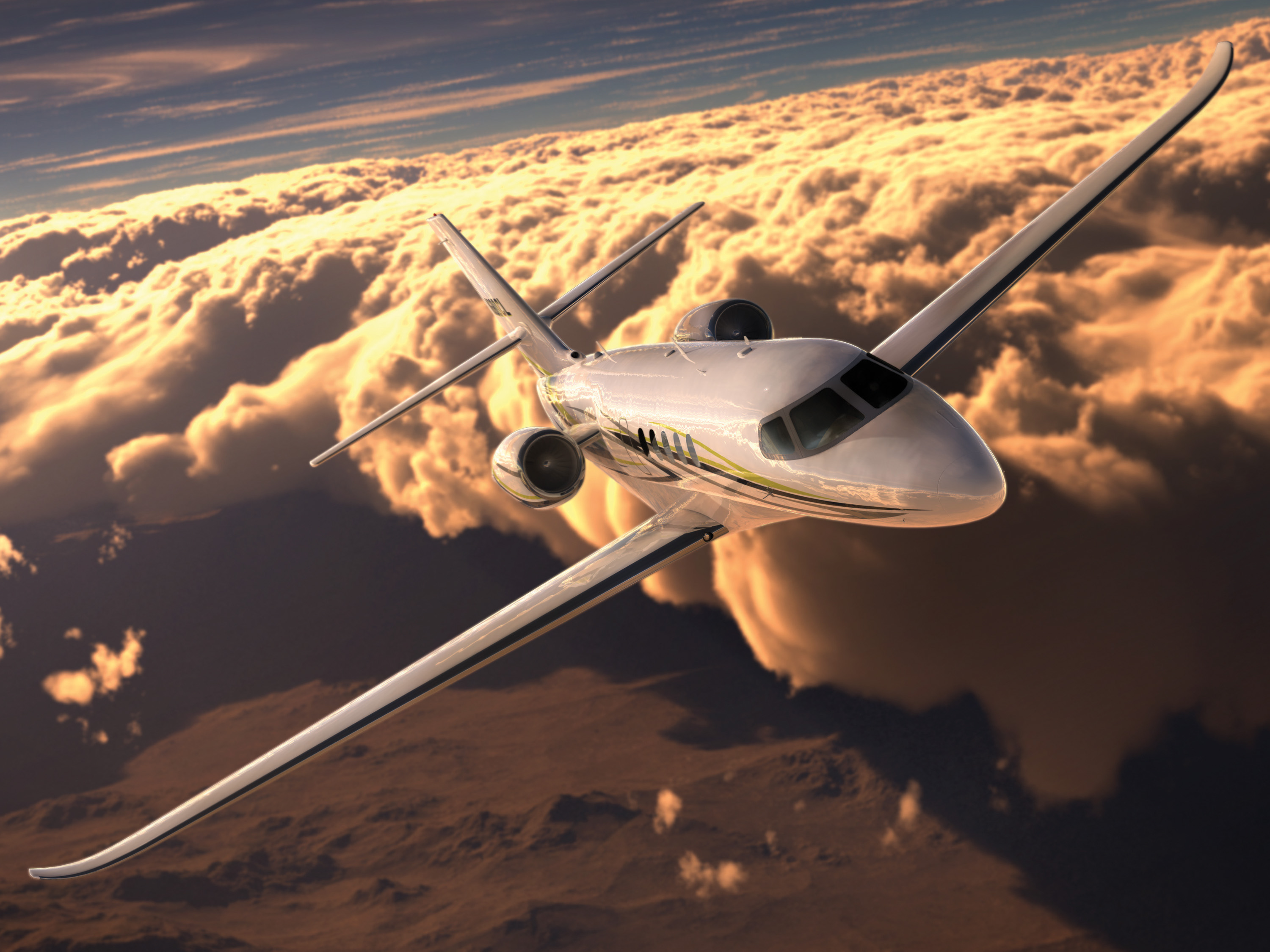

WICHITA, Kan., June 18, 2014 – Cessna Aircraft Company, a subsidiary of Textron Aviation Inc., a Textron Inc. (NYSE:TXT) company, today announced that it has started full assembly line flow on the Citation Latitude midsize business jet at its manufacturing facilities in Wichita, Kan. The assembly of the Latitude features a variety of technological advancements including the use of new automated robotics and ergonomically friendly tooling stations.
“We are not only bringing technological advances to the design of our new products, but also to the way we manufacture these world-class airplanes,” said Scott Ernest, president and CEO, Textron Aviation. “The Latitude is a perfect example of this, combining a new innovative design with many of the latest advances in manufacturing technology. Beginning production line flow keeps us on target for meeting our commitments to customers who are eager to take delivery of their new Citation Latitude.”
The first production aircraft will serve as the fourth flying prototype as part of the Citation Latitude certification program, which has accumulated 100 flights and nearly 230 hours to date. The Citation Latitude prototype flew for the first time in February and achieved full envelope performance for maximum speed (440 KTAS, 506 mph), Mach speed (0.80) and altitude (45,000 feet) in its third flight. Federal Aviation Administration (FAA) type certification is expected in the second quarter of 2015.
Cessna engineers developed an all-new fuselage for the Citation Latitude, creating the most open, spacious, light and refined cabin environment in the midsize category. The Latitude has the widest fuselage of any Citation jet, a flat cabin floor and 6 feet (1.83 meters) of cabin height. Cessna’s Clairity™ cabin-technology system ties into the Latitude’s advanced avionics center to provide connectivity and entertainment to each passenger through their personal electronic devices.
The Citation Latitude accommodates up to nine passengers, can reach a flight level of 43,000 feet (13,106 meters) in just 23 minutes and has a range of up to 2,500 nautical miles (4,630 kilometers). It is designed with a powerful new cabin cooling system, a pressurization system providing a 6,000-foot (1,829-meter) cabin altitude at the aircraft’s maximum operating altitude of 45,000 feet (13,716 meters), an electronically-operated cabin door and Garmin G5000 avionics and auto-throttle capabilities.
